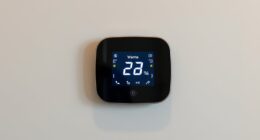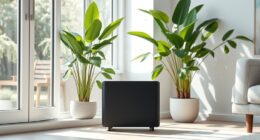Fed up with steep energy costs and the unpredictable temperature control in your house? We have the perfect solution for you.
In our deep-dive into AC heat pumps, we’ll explore the importance of seasonal efficiency and how it can greatly improve your comfort and savings.
Imagine a home where you can enjoy optimal temperatures all year round, while also reducing your carbon footprint.
Get ready to dive into the world of AC heat pumps and discover how they can serve you and your home.
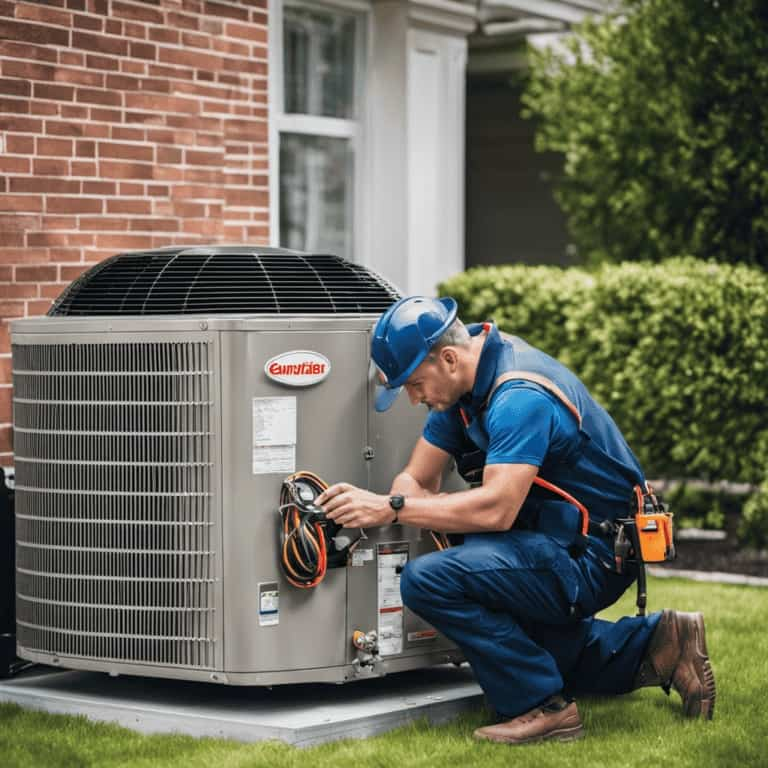
Key Takeaways
- Prioritizing seasonal efficiency in AC heat pumps leads to energy savings and improved performance.
- The SEER rating is an important factor in determining AC heat pump efficiency.
- Factors such as proper sizing, climate, insulation, and regular maintenance affect seasonal efficiency in heat pumps.
- Comparing AC heat pump models based on energy ratings and performance data helps homeowners make informed decisions and maximize energy savings.
The Importance of Seasonal Efficiency in AC Heat Pumps
We understand that prioritizing seasonal efficiency in AC heat pumps is essential for maximizing energy savings and performance.
Improving energy efficiency in AC heat pumps has numerous benefits, making it a top priority for those seeking to save on energy costs and reduce their environmental impact.
Seasonal performance plays a crucial role in achieving this efficiency. By aligning the operation of the heat pump with the specific demands of each season, it can dynamically adjust its performance to meet the changing needs of the space it’s cooling or heating. This ensures that the AC heat pump operates at its peak efficiency throughout the year, resulting in significant energy savings.
Additionally, optimizing seasonal performance enhances the overall comfort and performance of the system, providing a more consistent and reliable indoor climate for the users.
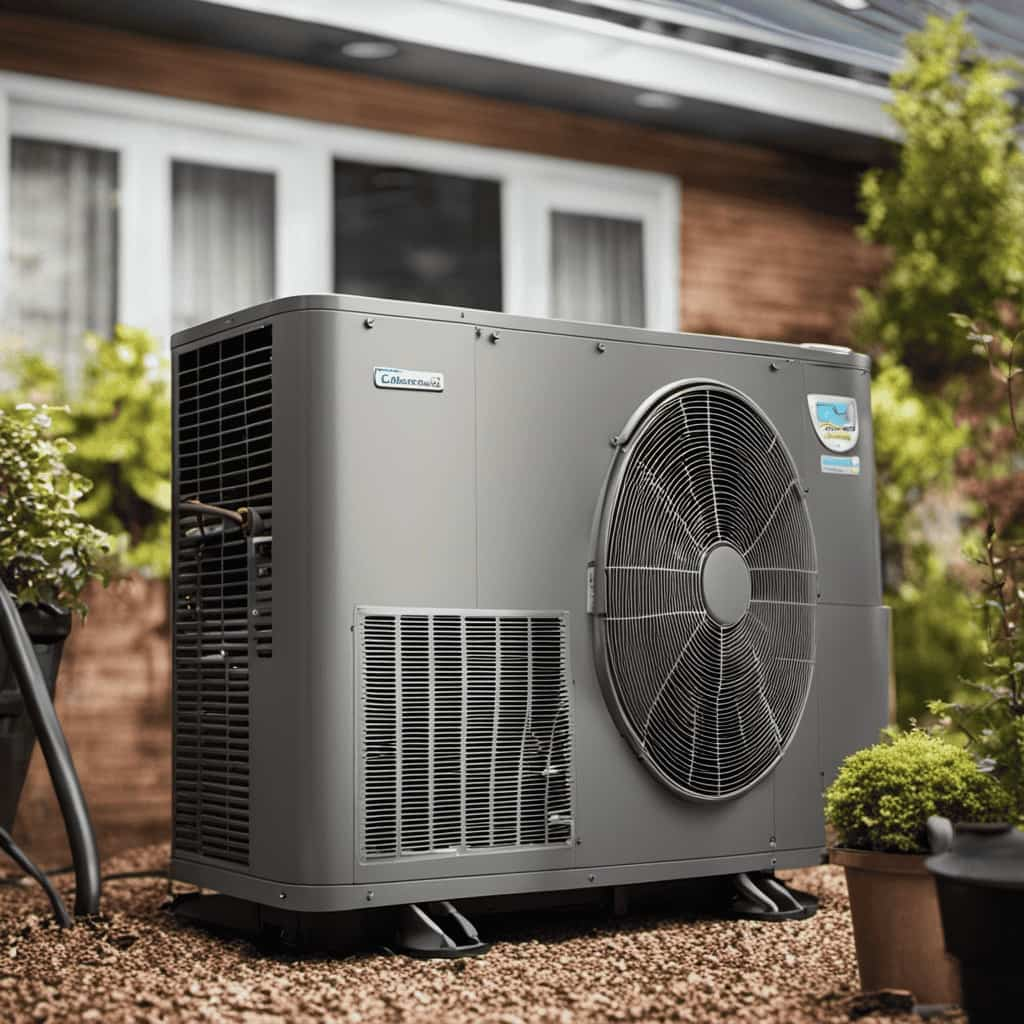
Understanding the SEER Rating: What You Need to Know
To fully grasp the efficiency of an AC heat pump, it’s important for us to understand the SEER rating and its significance.
The SEER (Seasonal Energy Efficiency Ratio) rating is a measure of the cooling efficiency of an air conditioning system over a typical cooling season. The SEER rating is calculated by dividing the cooling output of the system in BTUs (British Thermal Units) by the electrical energy input in watt-hours. A higher SEER rating indicates a more efficient system, as it can provide more cooling output with less energy consumption.
There are several benefits of a high SEER rating, including reduced energy costs, decreased environmental impact, and improved indoor comfort.
With this understanding of the SEER rating, we can now explore the factors that affect the seasonal efficiency of heat pumps.

Factors Affecting Seasonal Efficiency in Heat Pumps
Typically, the seasonal efficiency of heat pumps is influenced by various factors. These factors play a crucial role in determining the overall performance and energy efficiency of the heat pump.
Here are some key considerations that can affect the seasonal efficiency of heat pumps:
-
Heat pump sizing: Proper sizing of the heat pump is essential for optimal performance. If the unit is too small, it may struggle to meet the heating or cooling demands of the space, leading to reduced efficiency. On the other hand, an oversized heat pump can cycle on and off frequently, wasting energy.
-
Climate considerations: The climate in which the heat pump operates greatly impacts its efficiency. Heat pumps are generally more efficient in moderate climates where the temperature remains above freezing. In colder climates, the heat pump may need to rely on additional heating sources, reducing its overall efficiency.

-
Insulation and air sealing: Adequate insulation and proper air sealing of the building envelope can significantly improve the efficiency of heat pumps. By minimizing heat loss or gain, the heat pump can operate more efficiently, reducing energy consumption.
-
Maintenance and regular servicing: Regular maintenance and servicing of the heat pump are crucial for optimal performance. Dirty filters, clogged coils, and refrigerant leaks can all affect the efficiency of the heat pump. Regular inspections and cleaning can help ensure that the heat pump operates at its peak efficiency.
Tips for Improving the Seasonal Performance of AC Heat Pumps
By implementing proper maintenance and insulation, we can enhance the seasonal performance of AC heat pumps. Regular maintenance is crucial for optimal functioning of heat pumps. This includes cleaning or replacing air filters, checking refrigerant levels, and inspecting electrical connections. Additionally, ensuring proper insulation in the home helps to minimize heat loss or gain, allowing the heat pump to operate more efficiently. Another way to improve performance is by optimizing the settings of the heat pump. Adjusting the thermostat to a comfortable yet energy-saving temperature can make a significant difference in energy consumption. Utilizing programmable thermostats can also help to regulate temperature settings based on occupancy patterns. By following these tips and taking proactive measures, we can improve the maintenance and settings of AC heat pumps, resulting in enhanced seasonal performance.
| Maintenance Tips | Insulation Tips | Optimization Tips |
|---|---|---|
| Clean/replace air filters | Ensure proper insulation | Adjust thermostat settings |
| Check refrigerant levels | Seal air leaks | Utilize programmable thermostats |
| Inspect electrical connections | Properly insulate ductwork | Monitor occupancy patterns |
Comparing Seasonal Efficiency of Different AC Heat Pump Models
We can compare the seasonal efficiency of different AC heat pump models by analyzing their performance data and energy ratings. This comparison is crucial for homeowners who are looking to maximize their energy savings and improve the efficiency of their cooling and heating systems.

Here are some key factors to consider when comparing AC heat pump models:
-
Energy Efficiency Ratio (EER): Look for models with higher EER ratings, as they indicate better energy efficiency and potential for energy savings.
-
Seasonal Energy Efficiency Ratio (SEER): Higher SEER ratings signify better overall cooling efficiency, resulting in reduced energy consumption and lower utility bills.
-
Heating Seasonal Performance Factor (HSPF): Consider models with higher HSPF ratings, as they indicate better heating efficiency and potential for energy savings during colder months.

-
Coefficient of Performance (COP): A higher COP signifies better overall performance and energy efficiency.
Frequently Asked Questions
How Often Should I Schedule Maintenance for My AC Heat Pump to Ensure Optimal Seasonal Efficiency?
We recommend scheduling maintenance for your AC heat pump on a regular basis to ensure optimal seasonal efficiency. By following a maintenance checklist, you can address any potential issues and keep your system running smoothly.
Are There Any Government Incentives or Rebates Available for Purchasing High-Efficiency AC Heat Pumps?
Yes, there are government incentives and rebates available for purchasing high-efficiency AC heat pumps. These programs aim to encourage energy savings and provide financial assistance to homeowners.
Can I Install an AC Heat Pump Myself, or Do I Need to Hire a Professional HVAC Technician?
We recommend hiring a professional HVAC technician for AC heat pump installation. DIY installation may lead to improper installation, voiding warranties, and potential safety hazards. Professionals have the expertise and tools to ensure a proper and efficient installation.
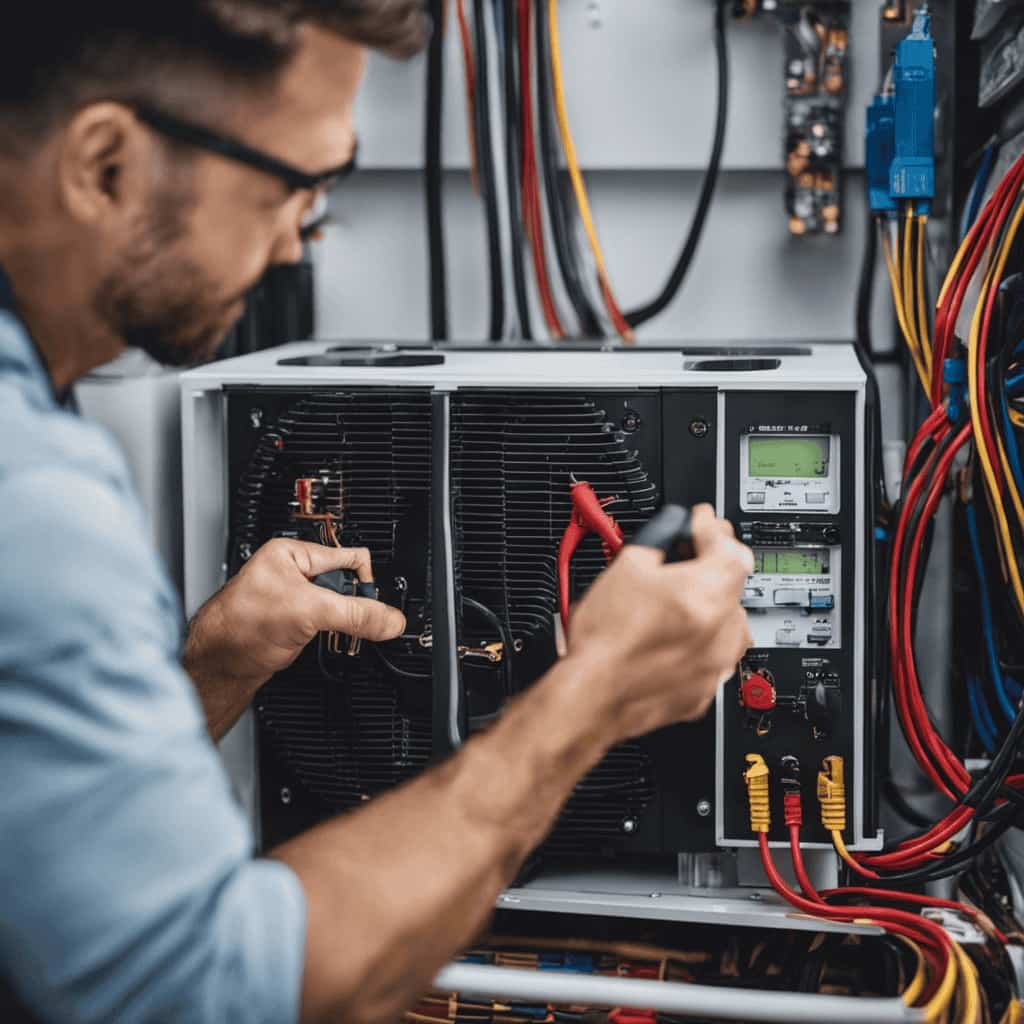
What Are the Potential DrawbACks or Limitations of Using AC Heat Pumps in Colder Climates?
In colder climates, potential drawbacks of using AC heat pumps include high electricity consumption and reduced heating capacity. However, in terms of cost effectiveness and impact on indoor air quality, AC heat pumps can still be a viable option.
How Does the Seasonal Efficiency of AC Heat Pump Models Compare to Other Cooling Systems, Such as Central Air Conditioning Units or Ductless Mini-Split Systems?
When comparing the seasonal efficiency of AC heat pump models to other cooling systems like central air conditioning units or ductless mini-split systems, we need to consider energy consumption and overall performance.
Conclusion
In conclusion, understanding the seasonal efficiency of AC heat pumps is crucial for optimizing their performance.
One interesting statistic to consider is that a heat pump with a higher SEER rating can save up to 20% on energy costs compared to a lower-rated model.

By implementing tips to improve seasonal performance and comparing different models, homeowners can make informed decisions to maximize energy savings and comfort in their homes.







